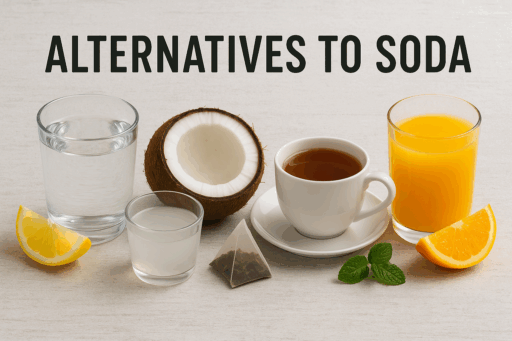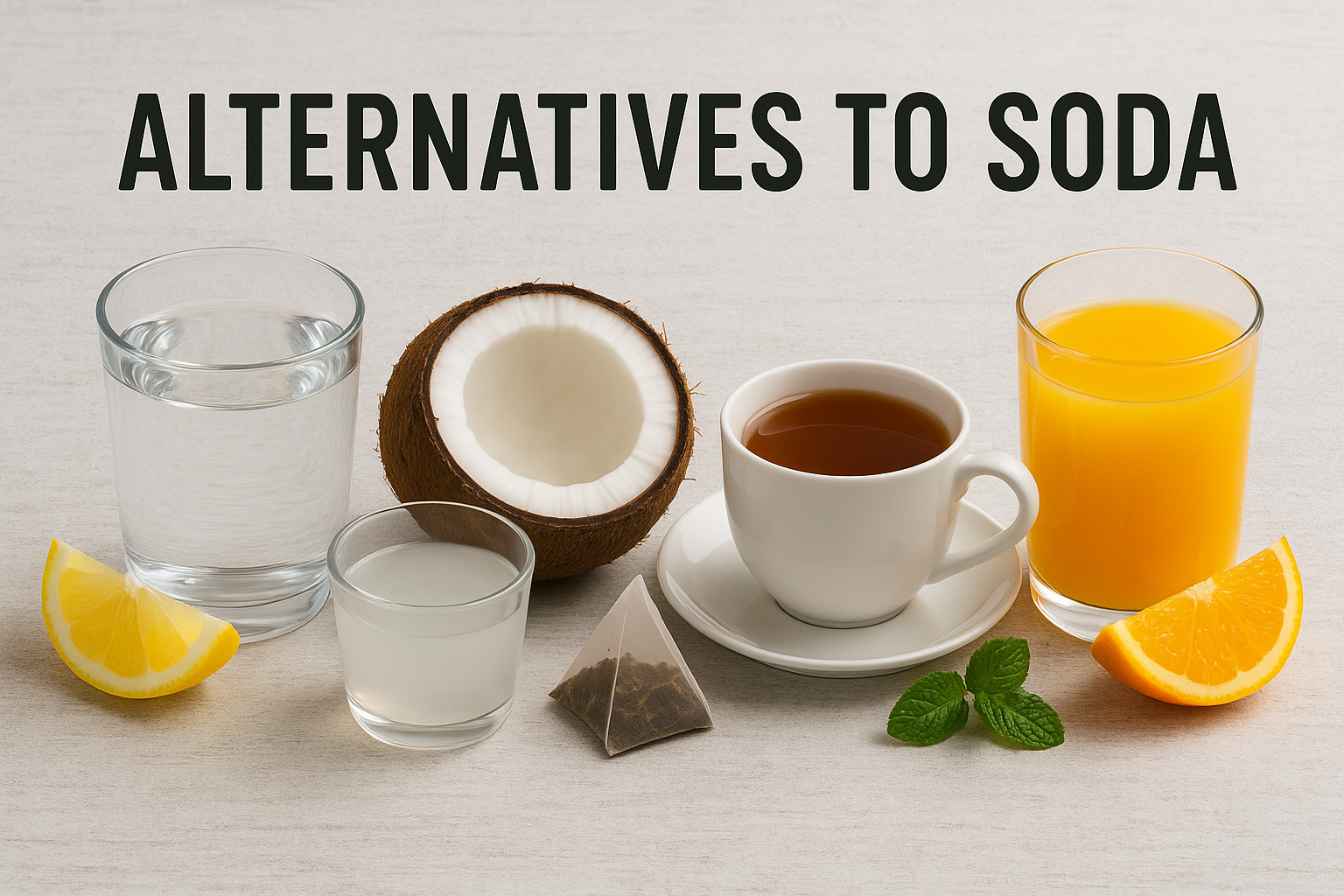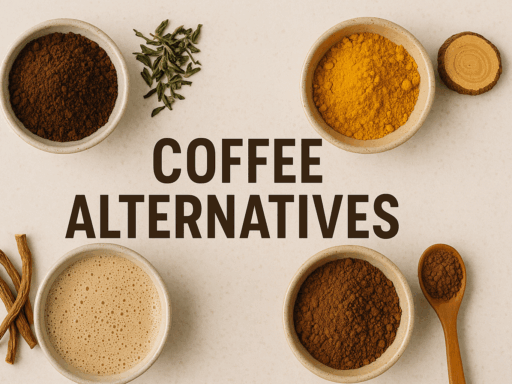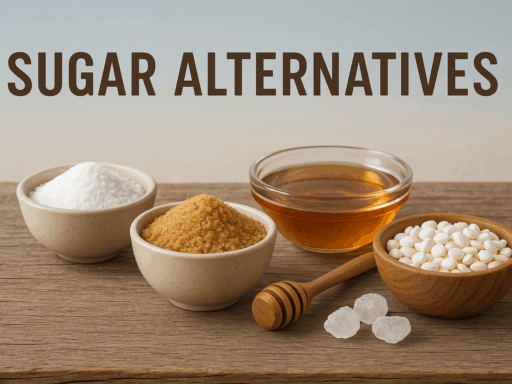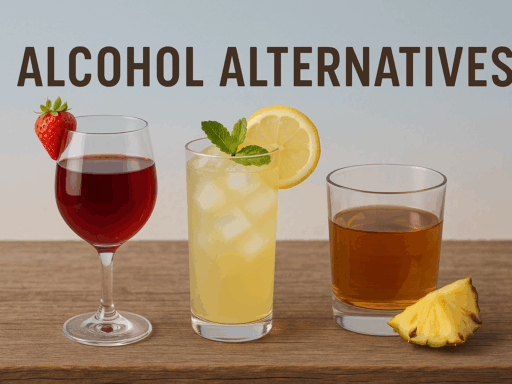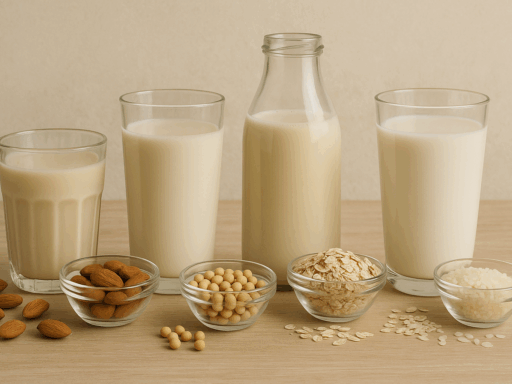Soda has long been a favorite drink for people of all ages, but its high sugar content and artificial additives make it a less-than-ideal choice for those looking to maintain a healthy lifestyle. With concerns over obesity, diabetes, and other health issues on the rise, many people are turning to healthy alternatives to soda as a way to enjoy a refreshing, flavorful beverage without the negative health effects. These alternatives not only provide a satisfying drink but also offer unique health benefits, such as improved hydration, better digestion, and lower sugar intake.
In this article, we will explore some of the best healthy soda alternatives, their sustainability, applications, and health benefits, while discussing the challenges consumers may face when transitioning away from sugary sodas to healthier beverages. We will also highlight some of the leading brands and products in the healthy soda alternative market.
Why Choose Healthy Soda Alternatives?
Regular sodas, especially those that are sweetened with high-fructose corn syrup, are packed with empty calories, sugar, and artificial ingredients that contribute to weight gain, insulin resistance, and chronic diseases such as diabetes and heart disease. The high sugar content in sodas also spikes blood sugar levels, which can lead to a sugar crash and increased cravings.
Healthy soda alternatives provide a way to enjoy the familiar refreshing taste of soda while reducing sugar intake and offering additional nutritional benefits. These alternatives often include natural sweeteners, are free from artificial additives, and may even have added health benefits, such as digestive support, antioxidant properties, or immune system boosting.
Making the switch to healthier options can have a significant impact on overall health, particularly when it comes to controlling blood sugar levels and reducing the risk of chronic diseases. With so many delicious and nutrient-packed options available, it’s easier than ever to say goodbye to sugary sodas and embrace healthier alternatives.
Top Healthy Soda Alternatives

1. Sparkling Water
Sparkling water is one of the most popular healthy soda alternatives, providing the satisfying fizziness and refreshing qualities of soda without the sugar or calories. Available in a variety of flavors, sparkling water is a versatile beverage that can be enjoyed on its own or mixed into cocktails or mocktails.
- Examples: LaCroix, Spindrift, Perrier, and San Pellegrino.
- Applications: Sparkling water can be consumed as a standalone beverage or used as a mixer for mocktails and cocktails. It’s also a great base for fruit infusions, where you can add fresh herbs or fruit slices for extra flavor.
- Benefits: Sparkling water is calorie-free, sugar-free, and contains no artificial sweeteners, making it a great alternative for those looking to stay hydrated without adding excess sugar. Some sparkling waters are also enriched with minerals, which can help support hydration.
Sustainability:
- Sparkling water is generally a sustainable option, especially when sourced from natural spring waters. Many brands, like Perrier and San Pellegrino, focus on eco-friendly packaging, such as recyclable glass bottles or cans.
Challenges:
- Taste Preferences: While sparkling water is refreshing, some people may find the lack of sweetness a challenge, particularly if they are used to sugary sodas. Adding natural fruit infusions or choosing flavored sparkling waters can help improve the taste.
- Carbonation: Some individuals may experience bloating or discomfort from the carbonation, though this is typically a minor issue for most consumers.

2. Kombucha
Kombucha is a fermented tea beverage known for its tangy, effervescent qualities and numerous health benefits. It is made by fermenting tea with sugar and a symbiotic culture of bacteria and yeast (SCOBY), which produces natural probiotics that support gut health.
- Examples: GT’s Kombucha, Health-Ade, and Kevita.
- Applications: Kombucha can be consumed on its own, used in smoothies, or even served as a mocktail base. It is available in a variety of flavors, including ginger-lemon, hibiscus, and berry blends.
- Benefits: Kombucha is packed with probiotics that support digestion, improve gut health, and boost the immune system. It’s also a low-calorie, sugar-free drink, making it an ideal alternative to sugary sodas.
Sustainability:
- Kombucha production is more sustainable than soda production. Tea leaves, one of its primary ingredients, are relatively low in water usage and can be sourced sustainably. Additionally, many kombucha brands focus on eco-friendly packaging and reducing their environmental impact.
Challenges:
- Taste: The tangy and slightly vinegary taste of kombucha may take some getting used to, particularly for people accustomed to the sweetness of soda. However, flavored kombucha options can make the taste more appealing.
- Alcohol Content: While most kombucha contains less than 0.5% alcohol, it can still be an issue for people who are avoiding alcohol completely. Consumers should check labels for alcohol content if they are concerned.

3. Herbal Teas
Herbal teas are naturally caffeine-free, flavorful, and packed with antioxidants. Many herbal teas are naturally sweet or can be easily flavored with a touch of honey or stevia for a sugar-free, refreshing beverage.
- Examples: Celestial Seasonings, Traditional Medicinals, and Tazo.
- Applications: Herbal teas can be enjoyed hot or cold and are great as a standalone beverage or mixed into iced teas and smoothies. They can also be infused with fruits and herbs for added flavor.
- Benefits: Herbal teas offer a range of health benefits depending on the ingredients used. For example, chamomile is calming, peppermint can aid digestion, and hibiscus is rich in vitamin C. They are generally low in calories and sugar-free.
Sustainability:
- Many brands, such as Traditional Medicinals, focus on using organic herbs and sustainable sourcing practices. Herbal tea bags are often made from biodegradable materials, making them an environmentally friendly choice.
Challenges:
- Taste: The taste of herbal teas may be unfamiliar or too subtle for those used to the strong, sweet flavors of soda. Adding fresh fruit, lemon, or a splash of juice can help enhance the flavor.
- Availability: While herbal teas are widely available, not all varieties are as widely distributed as sodas, especially in smaller or more remote locations.

4. Coconut Water
Coconut water is the clear liquid found inside young coconuts. It is naturally hydrating and provides essential electrolytes such as potassium, magnesium, and sodium, making it an excellent alternative to sugary sodas and sports drinks.
- Examples: Vita Coco, Zico, and Harmless Harvest.
- Applications: Coconut water can be enjoyed on its own or used as a base for smoothies, mocktails, or sports drinks. It’s also a great addition to fruit-based beverages for extra hydration.
- Benefits: Coconut water is low in calories and rich in electrolytes, making it an ideal beverage for rehydration and post-workout recovery. It is also high in antioxidants, which help reduce inflammation and oxidative stress.
Sustainability:
- Coconut water is a more sustainable beverage compared to soda, as coconuts are typically grown in tropical regions where water usage is relatively low. Many brands, such as Harmless Harvest, focus on organic, sustainable sourcing and environmentally friendly packaging.
Challenges:
- Taste: Coconut water has a slightly sweet, nutty flavor that may not appeal to everyone, especially those accustomed to the sweetness of soda. Flavored coconut water options can help appeal to a wider audience.
- Price: Coconut water is often more expensive than soda, which may deter budget-conscious consumers from choosing it regularly.

5. Fruit Infused Water
Fruit-infused water is a simple yet refreshing option for those who enjoy a hint of flavor without the added sugar of soda. By infusing water with fresh fruits, herbs, and even vegetables, you can create a variety of delicious and healthy beverages.
- Examples: Infuse water with ingredients like lemon, cucumber, berries, mint, or citrus for a refreshing drink.
- Applications: Fruit-infused water can be made at home by simply adding slices of fruit and herbs to a jug of water. It’s also available in bottled versions in some markets.
- Benefits: Fruit-infused water provides hydration without the added calories, sugar, or artificial ingredients found in soda. It’s also customizable, so you can experiment with different flavor combinations to find what you enjoy.
Sustainability:
- Making fruit-infused water at home is an incredibly sustainable option since it uses minimal resources and avoids plastic packaging. Buying fresh, organic fruit from local farmers markets can further enhance the sustainability of this choice.
Challenges:
- Preparation: Preparing fruit-infused water requires some advance planning, as it needs time to infuse in the fridge. However, once prepared, it can be kept for several days in the refrigerator.
- Taste: For some, the flavor of fruit-infused water may seem too subtle compared to the sweetness of soda. Adjusting the ratio of fruit to water or adding a little bit of natural sweetener can help balance the flavor.
Sustainability of Healthy Soda Alternatives
The healthy soda alternatives market is growing, and many of these options are more sustainable than traditional sodas. Here are a few ways in which these alternatives support sustainability:
- Natural Sourcing: Many brands, such as Harmless Harvest and Vita Coco, focus on sustainably sourcing their ingredients, particularly coconuts and fruits, to reduce environmental impact.
- Eco-friendly Packaging: Brands like LaCroix and Perrier are increasingly opting for recyclable packaging, such as aluminum cans and glass bottles, to reduce plastic waste.
- Local Sourcing: Products like fruit-infused water and herbal teas often use locally sourced ingredients, which helps minimize transportation costs and emissions.
Challenges in Adopting Healthy Soda Alternatives
While healthy soda alternatives offer numerous benefits, they also come with challenges:
- Taste Preferences: Many people enjoy the sweet, fizzy flavor of soda, which makes it difficult to switch to alternatives like sparkling water or herbal teas, especially if they are used to sugary drinks.
- Cost: Healthy soda alternatives, especially options like coconut water or kombucha, are often more expensive than traditional sodas, which can make them less accessible to some consumers.
- Availability: While healthy alternatives are becoming more popular, they may still not be as widely available in all regions, particularly in areas where sugary sodas dominate.
Switching to healthy soda alternatives is a smart choice for anyone looking to improve their health, reduce sugar intake, and contribute to environmental sustainability. From sparkling water and kombucha to fruit-infused water and coconut water, there are plenty of refreshing and flavorful alternatives to sugary sodas.
While challenges such as taste preferences, cost, and availability remain, the growing demand for healthier options means that the market will continue to evolve, making it easier for consumers to find alternatives that suit their tastes and lifestyles. With so many delicious options available, it’s never been easier to quench your thirst without the sugar.

